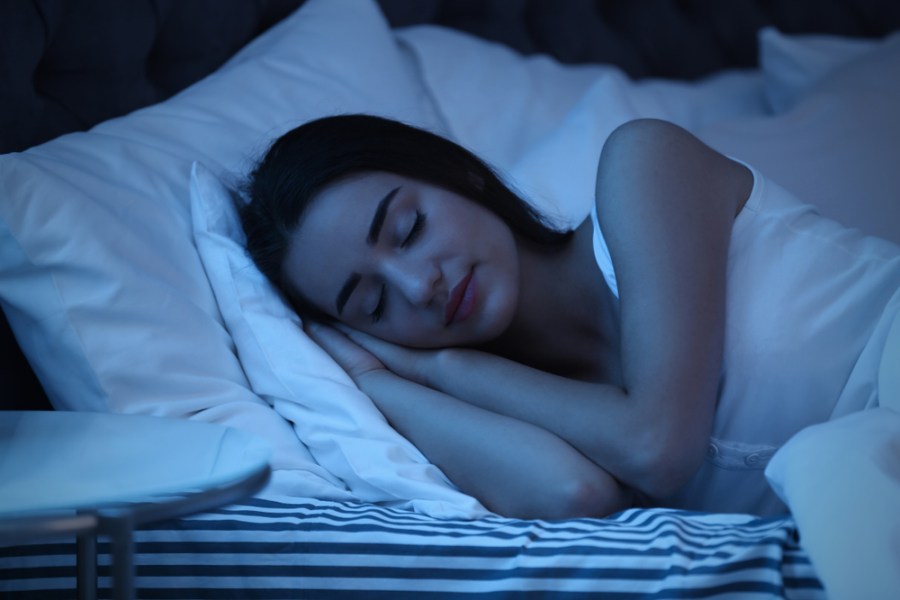Rework your slumber routine and you might just get the rest you’re longing for…
Lockdown might mean that you’ve changed your everyday schedule. Without the usual daily structure you’re accustomed to, and more time spent at home, you might feel more sluggish and perhaps this has negatively impacted your sleep routine. Experts generally agree that we need around seven to eight hours snoozing time per night in order to allow our bodies to restore and recuperate, but if you’re struggling to get enough shut-eye, Kathryn Pinkham founder of The Insomnia Clinic shares her top tips to kickstart your sleep routine.
1. Don’t spend too long in bed
The first thing we often do when we can’t sleep is start going to bed earlier, but this could be counterintuitive. ‘You should actually reduce the amount of time you spend in bed. Go to bed later and get up earlier, as this will encourage your body’s natural sleep drive to kick in. By reducing the time you spend in bed you will crave more sleep, fall asleep faster and find the quality of your sleep will improve, believes Kathryn.
2. Stop clock-watching
Tick tock, tick tock…staring at your alarm clock will only lead to further worry and anxiety. ‘It’s very tempting to look at the clock every time we wake up. We want to monitor how little sleep we are getting; however, this increases the pressure to fall back to sleep and makes it less likely. Set your alarm clock for the morning then avoid looking at the time again,’ shares Kathryn.
3. Manage your thoughts
A busy mind is one of the most common culprits in keeping us awake at night, and journaling can be an effective way to offload. Make time to jot down what is on your mind, this can be therapeutic as it is a way of getting things out of your head. ‘You don’t need to solve all of your problems, but when they are written in black and white you will get a different perspective on things. For example, worrying that tonight you might not sleep only makes it more likely that you won’t. Write down that thought and acknowledge it but then change your focus,’ says Kathryn.
4. Get active
You might not be able to get to the gym right now, but you can still keep moving. Exercise can have a beneficial effect on your sleep routine – it calms down your mind and keeps you feeling good. ‘Not only is exercise outdoors a great way to start the new year, but it’s also actually great for your mental and physical health, and anything you can do to reduce anxiety is beneficial for your sleep,’ believes Kathryn. There are plenty of ways you can get active – try one of our WF workouts or go for a daily run or walk.
5. Don’t lie in bed awake
If you wake up in the middle of the night, don’t lie under the covers tossing and turning. ‘The longer we lie in bed trying to fall back to sleep the more frustrated we get. This, in turn, means we begin to subconsciously relate bed to feeling stressed and being awake rather than asleep. Leave the bedroom and do something relaxing like reading a book downstairs, then when you are tired go back to bed,’ adds Kathryn.







